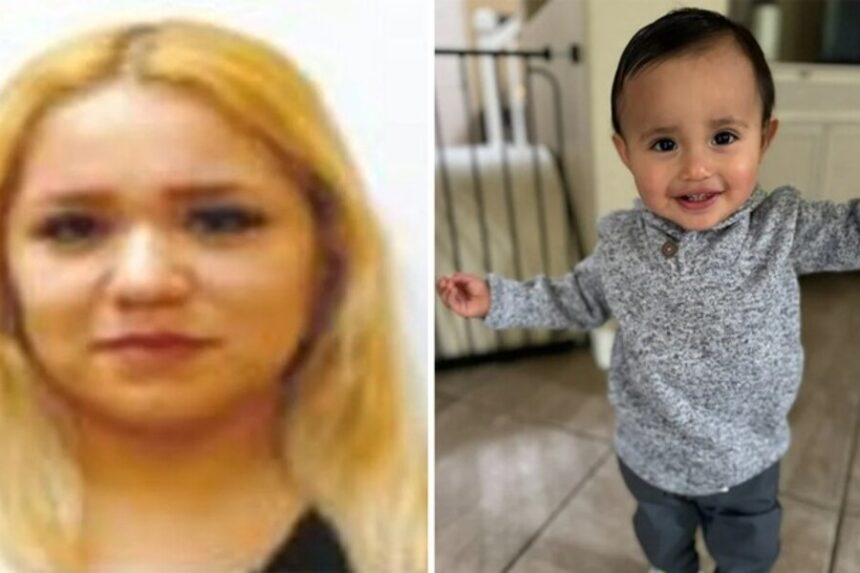In a dramatic turn of events that has captured the attention of both national and international law enforcement agencies, the Federal Bureau of Investigation (FBI) is spearheading a concerted effort to locate 31-year-old Brigette Benitez, accused of kidnapping her biological son, 16-month-old Miguel Eduardo Zuniga Medina Jr., and fleeing across the border into Mexico. The case, unfolding across jurisdictions and borders, underscores the complexities of international parental kidnapping cases and the challenges faced by authorities in their resolution.
The sequence of events began on February 6, when Brigette Benitez was reported to have taken her son from Walnut, California, for a scheduled unsupervised visit. However, concerns were raised when she failed to return the child to his foster family, with whom he had been placed by the Los Angeles County Department of Children and Family Services (DCFS). Benitez, who does not have legal custody of her son, was last seen driving a black 2021 Toyota Camry bearing the California license plate 8WAS968.
Subsequently, Benitez was charged with international parental kidnapping, a grave offense that prompted the issuance of a federal arrest warrant. The charge was filed in the U.S. District Court in Los Angeles, reflecting the severity of the allegations against her and the determination of federal authorities to secure her apprehension and the child’s safe return.
Investigators believe that Benitez may have taken her son to Aguascalientes, Mexico, potentially seeking refuge with the child’s non-custodial father, Miguel Eduardo Zuniga Medina Sr. This individual, previously arrested for domestic violence and known for a history of violent behavior in the presence of children, resides in Mexico, further complicating the search and rescue efforts.
The FBI, alongside the Los Angeles County Sheriff’s Department and with assistance from U.S. Customs and Border Protection and the United States Marshals Service, is actively pursuing leads. Their investigation confirmed that Benitez crossed into Mexico on February 6 via the Otay Mesa Port of Entry in San Diego County, marking a significant development in the case and narrowing the search perimeter to international boundaries.
In their quest to locate Benitez and her son, federal authorities have issued a public appeal for information that could lead to their whereabouts. The case has drawn significant media attention, not only due to the nature of the allegations but also because of the involved parties’ complex legal and familial dynamics. Laura Eimiller of the FBI highlighted the urgency of the situation, emphasizing the critical need to ensure the child’s safety and well-being.
Prior incidents involving the family have further illuminated the challenges surrounding custody disputes and the measures taken to protect vulnerable children. Following an arrest last year for an alleged domestic violence incident involving Medina Sr., the Los Angeles County Superior Court deemed it necessary to remove Miguel Jr. from his parents’ custody, placing him under the protective oversight of the DCFS for his health, safety, and well-being.
The international nature of this case necessitates cooperation between various law enforcement and child welfare agencies across countries, showcasing the complexities of addressing parental kidnapping cases that cross borders. The United States Attorney’s Office in Los Angeles is leading the prosecution efforts, working tirelessly to navigate the legal and diplomatic challenges inherent in such situations.
As the search for Brigette Benitez and her son Miguel continues, this case serves as a poignant reminder of the vulnerabilities and legal entanglements that can arise in custody disputes, especially those transcending national borders. The international effort to locate and return Miguel Eduardo Zuniga Medina Jr. underscores the commitment of law enforcement agencies to protect children and uphold the rule of law, regardless of the geographic and jurisdictional hurdles they may encounter. The resolution of this case remains of paramount importance, with authorities and the public alike holding out hope for a safe return of the young child to the United States.




